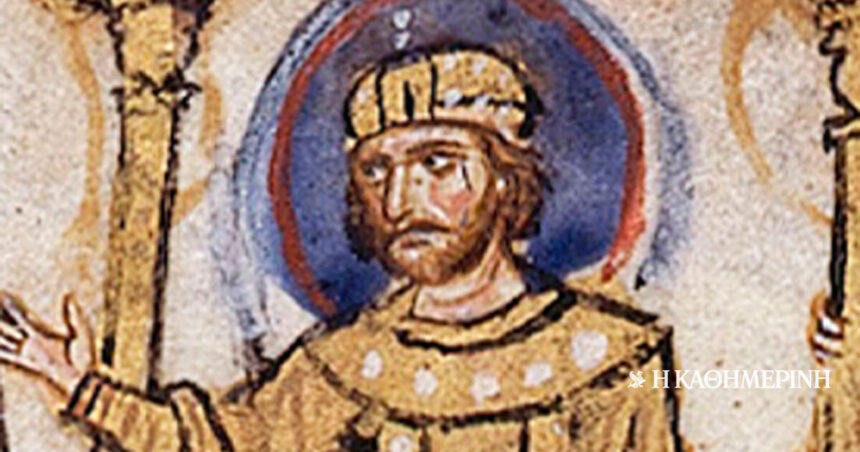After the assassination of Leo the Armenian in 820, on his throne Byzantium Michael II, the so-called “Traulos” and founder of the Amorio dynasty, rose up. Michael came from Amoria in Phrygia and had a career in the army. The sources of the time present him as an uncouth man, who, however, possessed a sharp mind and sound judgment on important issues. On the burning issue of Iconoclasm, which was plaguing the empire, Michael showed moderation, not so much out of indifference to the issue as out of political realism.
In the first years of the reign of Michael II, the military movement of Thomas the Slav broke out, which took on large dimensions
In the first years of his Authority, it broke out military movement of Thomas the Slavwhich took on great proportions. Thomas rebelled against the new emperor after Leo was killed, proclaiming his desire to avenge the death of his close friend. He emerged as the defender of legality. Having previously served in Asia Minor, it was not difficult for Thomas to gather followers and money to further his cause.
The movement lasted three years, wreaking havoc on the Asia Minor countryside. Thomas himself was taken prisoner by Michael II while he was with his troops in Thrace, and was subsequently put to death by order of the emperor. His closest associates had the same fate. Thomas’s movement caused enormous problems in the stateas significant military forces were deployed to deal with the insurgents, leaving many border provinces unprotected. Of course, the Arabs, who were the great enemy of the empire at that time, did not miss this opportunity.
After the emperor’s death, his son Theophilos ascended the throne
On October 2, 829, Michael II passed away from natural causes. His son Theophilos ascended the thronean interesting and quite contradictory personality. Theophilus was widely cultured and showed an interest in the sciences and the arts. He was a student of the iconoclast theoretician Ioannis Grammatikos, who waged a great struggle against icons. John’s teachings certainly influenced the young emperor (born 813) in his views.
Theophilus wished to be a just ruler, who would pay attention to the requests of his subjects. The way he tried to achieve it, however, was somewhat theatrical. He himself liked to mix with the crowds, talk to the poor and helpless, listen to their grievances and administer justice. His behavior, which often did not follow the protocols of the court, gave birth to many legends. One of them also includes the hymn book of the Church, Cassianwho was among Theophilos’ prospective wives.
During the reign of Theophilos (829-842), the struggle of the Byzantines against the Arabs entered its most acute period. Theophilos’ wars began in 836 on the occasion of some raids by the Arabs on the eastern borders of the empire. Theophilus campaigned in eastern Asia Minor, defeated the Arabs, dispersed them in Syria and conquered the capital of Commagene, Samosata, birthplace of the ancient satirist Lucian. When he returned to Constantinople, Theophilus performed a magnificent triumph, boosting the morale of the inhabitants of the capital.
Column editor: Myrto Katsigera, Vassilis Minakakis, Antigoni-Despina Poimenidou, Athanasios Syroplakis








